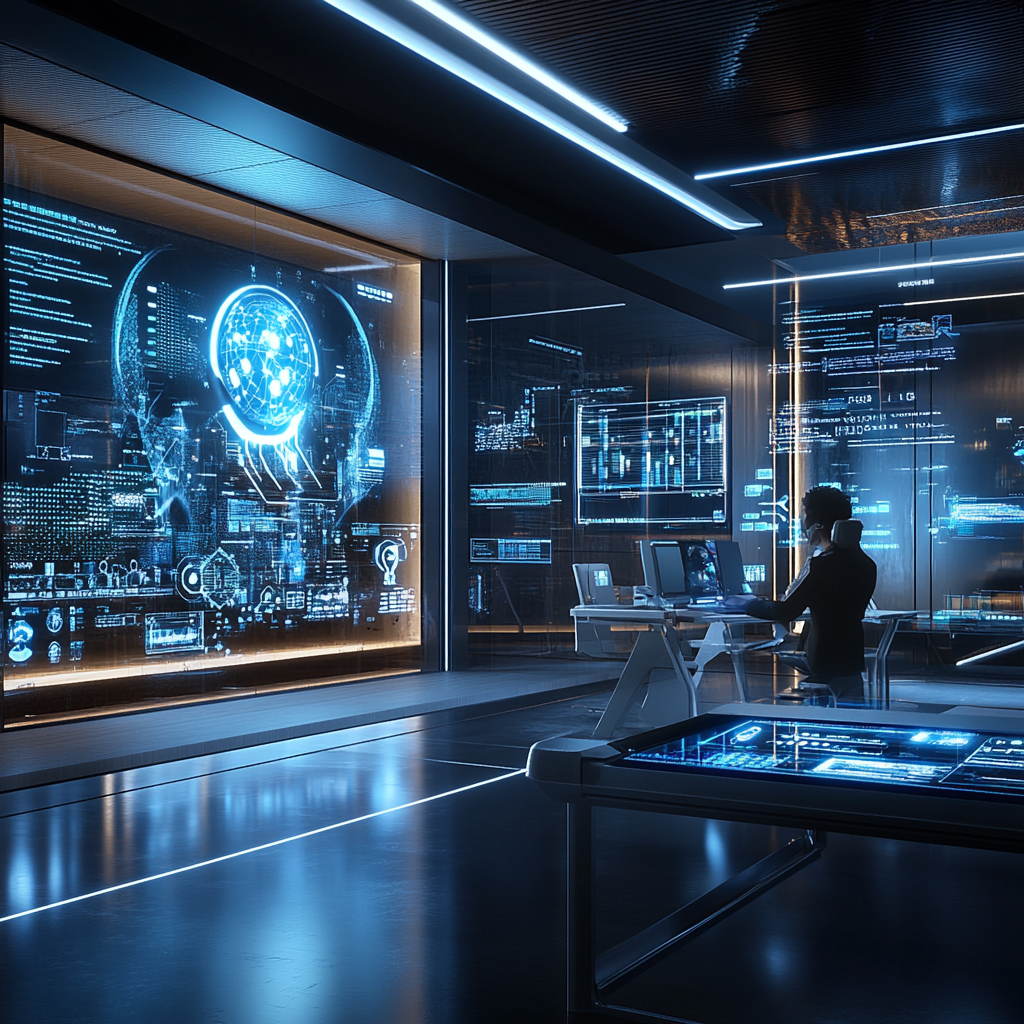
“OpenAI Unveils New Tools for Business-Centric AI Agent Development”
In the grand tapestry of technology, one thread has become increasingly vibrant: the presence of artificial intelligence. With the announcement of OpenAI’s new suite of tools, businesses are now invited into a thrilling journey of creating their very own AI agents. Ready yourself, for this marks a paradigm shift in how we engage with automation, productivity, and the very fabric of industry!
At the heart of this revolution sits a blockbuster innovation—the Responses API. Imagine a tool so versatile that it fuses the engaging qualities of conversational AI with the more intricate capabilities of task-specific assistants. Gone are the days when only tech giants could harness the might of AI; now, small businesses can craft personalized agents that navigate their digital landscapes just like seasoned pros. Want to comb through company files for that crucial document or pull the latest data from the web? This API makes those tasks as simple as a cakewalk in the park.
But the fun doesn't stop there! OpenAI has unveiled a treasure trove of built-in tools that transform these agents from mere responders into invaluable workhorses. Picture this: a Web Search function that fetches the most relevant data from across the vast expanse of the internet, or a File Search feature that dives deep into your organization's archives—efficiently retrieving just what you need. Oh, and let’s not forget the capability for agents to handle mundane computer tasks: diagnosing tech issues, scheduling meetings, and organizing email chaos. It's as if your digital assistant has been magically bestowed with the power to practically run your office—or should I say, run your life!
Now, for those business-savvy developers itching for a bespoke solution, OpenAI rolls out the red carpet with the Agents Software Development Kit (SDK). This open-source toolkit stands as a robust platform for crafting single and multi-agent workflows. You’ll find yourself transforming the tedious into the seamless, allowing your creations to serve specific needs—whether it's handling customer queries, generating content that sings, or delving into code reviews with elegance and finesse. Flexibility is the name of the game here, which is a refreshing change from the one-size-fits-all mentality that still clings stubbornly to many legacy systems.
With these advancements, the implications for businesses are monumental. Productivity is no longer confined to dreams of the future; it’s at our fingertips! Imagine being able to delegate intricate tasks to AI agents, who then free human minds to indulge in strategic thought and creativity. The potential is as vast as the horizon—businesses can shed the shackles of monotonous tasks and unleash the full spectrum of human ingenuity.
Now, let’s not kid ourselves: with innovation comes a bit of turbulence. OpenAI's Computer-Using Agent (CUA) is still honing its skills and may occasionally miscue, much like a toddler learning to walk. But rest easy in knowing that the folks at OpenAI are more committed than ever to refining and expanding their tools. Continuous improvement is part of their DNA. It’s the embodiment of moving forward, learning, and adapting.
What’s even more exhilarating is the prophetic vision put forth by Sam Altman, CEO of OpenAI, who has laid down the gauntlet—2025 will be the year AI agents strut confidently onto the global stage of the workforce. Can you feel the excitement building? We are on the cusp of an era where these entities will effortlessly weave themselves into our daily tasks, automating the labor-intensive actions we now consider mundane.
Think about it! Data entry that used to drain hours will transform into a task automated seamlessly. App workflows that require tedious transitions will become fluid, even freeing folks to engage with complex research projects they previously could only dream of tackling. As thrilling as this sounds, it’s vital to recognize that the current iteration of AI search tools isn’t without its hiccups. They may still flub factual inquiries and struggle with navigational queries—although OpenAI is in relentless pursuit of overcoming these hurdles.
In this burgeoning realm, ethical considerations cannot be ignored. With great power comes great responsibility; as AI agents become commonplace, the necessity for ethical frameworks and governance will only intensify. Businesses adopting these groundbreaking tools must exercise due diligence to ensure they embrace a methodology that acknowledges bias and addresses issues such as digital redlining and civil rights. It’s a complex landscape to navigate, but vital for ensuring we enjoy the benefits without compromising our morals.
As we take a moment to absorb the magnitude of OpenAI's offerings, we find ourselves at the intersection of opportunity and necessity. It’s a time to embrace the future, where AI agents offer us unprecedented chances to enhance productivity and creativity. However, remaining aware of the potential pitfalls and ethical responsibilities turns us from mere participants into responsible leaders in this developing narrative.
With technology as our ally and OpenAI providing the tools, we should lean into the wave of transformation rather than hesitate before it. Curiosity should be our guiding star, pushing us to explore the boundaries of what is possible with our ever-evolving AI companions.
So, dear reader, why stand back in the shadows when you can gleefully leap into this new era? Want to stay up to date with the latest news on neural networks and automation? Subscribe to our Telegram channel: @ethicadvizor. Let’s not just be spectators in this unfolding drama—let’s actively shape the future together!

